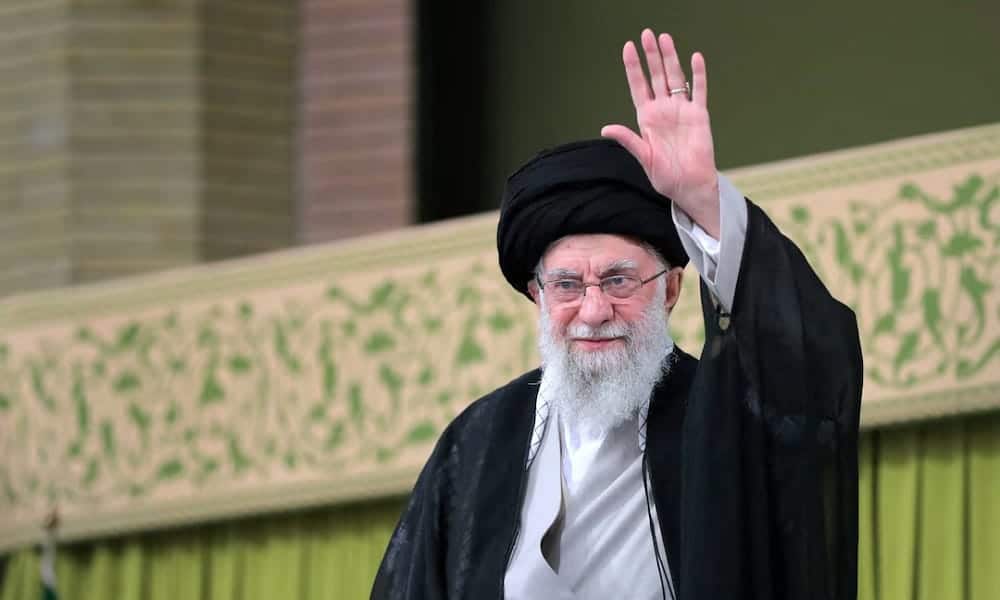Iran’s Supreme Leader Ayatollah Ali Khamenei on urged officials and the public not to pin the country’s fate on ongoing nuclear talks with the United States, cautioning against inflated expectations as a second round of negotiations is set to take place in Muscat on April 19.
With Iran’s rial gaining nearly 20 percent against the dollar in recent days and a renewed sense of optimism sweeping parts of the population, Khamenei sought to temper the mood. “We are neither overly optimistic nor pessimistic… the negotiations may lead to results, or they may not,” he said during a meeting with senior officials, according to state media. “Avoid linking the country’s fate to these talks.”
The remarks come amid economic hardship and public discontent driven by soaring inflation, unemployment, and years of crippling U.S. sanctions—reimposed after former U.S. President Donald Trump withdrew from the 2015 nuclear deal during his first term. The current talks, spearheaded by White House special envoy Steve Witkoff, are seen by some Iranian insiders as a potential breakthrough, though Tehran remains wary of Washington’s intentions.
Witkoff said on X that Trump had directed him to “create a tough, fair deal that will endure,” adding that any final agreement must end Iran’s nuclear enrichment and weaponization program to establish peace and stability in the region.
However, Tehran has publicly rejected demands to dismantle its peaceful nuclear program or conventional missile capabilities, insisting such conditions are non-negotiable. Iranian leaders remain distrustful of Trump, citing his threats of military action and his rapid return to a “maximum pressure” campaign aimed at cutting Iran’s oil exports to zero.
Despite these tensions, some Iranian officials believe Trump’s business background could make him more amenable to a deal that includes economic incentives—such as allowing U.S. investment in Iran or purchasing American aircraft.
Nevertheless, hardline Iranian newspapers have cautioned against stirring false hope. “Why do you make promises about the talks that cannot be fulfilled?” the Khorasan daily wrote on Monday. “Don’t undermine public trust with promises made only for fleeting media attention.”
Iran has exceeded uranium enrichment limits since 2019, with the International Atomic Energy Agency reporting that Tehran is now producing uranium close to weapons-grade levels. Tehran continues to deny pursuing nuclear weapons and insists its program is strictly for civilian purposes.
According to the Tehran Times, Iran is demanding the removal of sanctions on several key sectors and wants guarantees that such sanctions cannot be reinstated under alternate pretexts.
The outcome of the Muscat talks could mark a critical turning point for Iran’s economic and geopolitical trajectory—though officials in Tehran remain cautious about whether lasting relief will emerge from the negotiating table.





